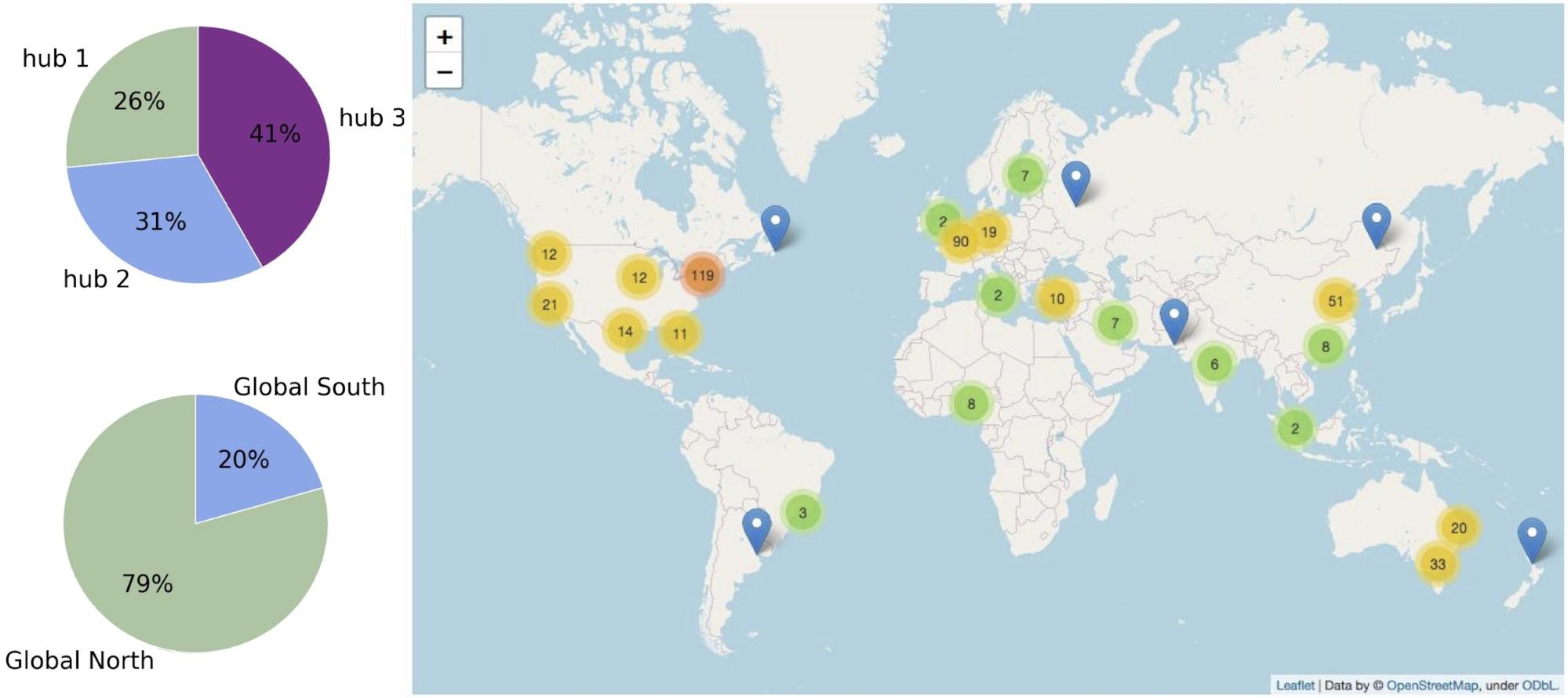
OHBM Hackathon 2020 Report for sponsors
30 September 2020Recent global health threats have shown more clearly than ever that scientific progress happens faster through collaboration when scientific results are open and accessible. At INCF we support open science, particularly through the development of tools, resources, and standardized practices. These support neuroscientists by providing a clear path to follow in order to create FAIR and open research. Events like the 2020 OHBM Hackathon bring together people from all over the world to learn and collaborate on projects that are then made available to the wider community, and are key to both developing new standards and fine-tuning existing practices within the global scientific community. INCF has supported the OHBM Open Science SIG and Hackathon since its inception in 2013, and is happy to play a part to ensure their continued success. Below you can read the report from the 2020 edition of the OHBM Brainhack:
First virtual OHBM Brainhack: 500 participants working together on brain projects!
For its 8th edition, the OHBM Brainhack - the annual hackathon of the Open Science SIG - ran as a virtual event on June 16-18, 2020, before the annual OHBM meeting.
With the ability to have a more global reach than ever, the Open Science SIG sought to make the event as accessible and inclusive as possible. We hosted the event across three separate hubs split across time-zones - the Asia Pacific hub; Europe, Middle East, and Africa hub; and the Americas hub.

OHBM Brainhack hubs (Image credit: Frantisek Vasa)
By holding virtual events across multiple hubs, we wanted to make it possible for all worldwide to attend during typical working hours. Our hope was to reach out beyond Europe and North America (in 2019, 95% of hackathon attendees were based in Europe or North America).
We are happy to report that the 2020 OHBM Brainhack hosted 38 projects and attracted almost 500 attendees making it the largest OHBM hackathon to date, the participants were from 36 countries and 20% from the Global South.

Locations of the 2020 OHBM Brainhack attendees
Designing a virtual event requires a new way of working and we tried our best to make the event welcoming to newcomers. For example, each newcomer was offered the opportunity to be paired with a more experienced buddy.
We also attempted to attain a more balanced gender breakdown across all participants and particularly across project leaders.

Gender breakdown across hubs *Please note that participants were not asked to report gender, and we used an automatic API to determine the gender breakdown. This unfortunately means that there may be possible error, and we could not account for nonbinary indivduals.
As in past years, the program was divided in two parallel sessions: 1- the “HackTrack” in which participants self-organized into projects of their choice and 2- the “TrainTrack”, a set of educationals covering essential skills for open and reproducible neuroimaging. Participants also got the opportunity to meet during social sessions that happened on Gather.town.
Here are a few hackathon projects and what was accomplished over the course of the event.
-
The Datalad project has grown tremendously over the past few years, and this year’s hackathon project led by Adina Wagner was centered around integrating Datalad with the Open Science Framework (OSF) such that data stored on OSF can more seamlessly be published as standalone repositories through a service such as Github. By the end of the event, a working prototype was developed.
-
One new project that aligned with the OS SIG’s mandate to make open science more diverse and inclusive was the Tools for Combating Citation Bias project led by Dale Zhou and Jennifer Stiso. The team had two main goals for the hackathon - (1) to develop an interactive Jupyter notebook that scientists can use in conjunction with a bibliography to compute a probabilistic gender breakdown of first and last authors and (2) to develop a Google Chrome extension that would automatically display the same probabilistic gender information on Google Scholar and PubMed. By the end of the event, the team presented a beta version of the Google Chrome extension.
-
A great example of a hackathon project that feeds directly into the educational portion of the event is the Tutorial for cross decomposition algorithms in Python. This project was led by Leonie Bornie with the goal to create a set of resources for individuals interested in learning how to use algorithms such as CCA and PLS in neuroimaging studies. By the end of the hackathon, the project team created two tutorials - one that introduces the general principles of cross decomposition and a second that shows how CCA results can be impacted by the underlying structure of the dataset being used. Ultimately, the notebooks that are developed as part of this project could be incorporated into the CONP NeuroLibre platform.
-
2020 has been a wacky year, and one of the teams worked on an equally bizarre and technically challenging project - Wacky Brain Explosions Vol II led by Omer Faruk Gulban. This project was a continuation of a previous hackathon project where a tool was developed for applying particle physics to MRI scans. The goal for this hackathon was to extend the tool such that MRI scans can be “exploded” in a multi-phase option as opposed to all at once.
If you’d like to catch up with some of the content, the TrainTrack lectures are now publicly available on Youtube and BiliBili: Git & Github, Good practices for programming in Matlab, BIDS, Introduction to Datalad, Containers for science and machine learning using Scikit-learn and nilearn, all covered for you!
The Open Science SIG is grateful for the support of its 2020 sponsors: INCF, Neuromod, CONP, Openneuro, Wellcome Center Integrative Neuroimaging, UNIQUE, QBIN and the OHBM Australian Chapter.
We are looking forward to more collaborative brain-hacking in 2021!
Elizabeth Levitis, Remi Gau, and Camille Maumet for the OS-SIG

